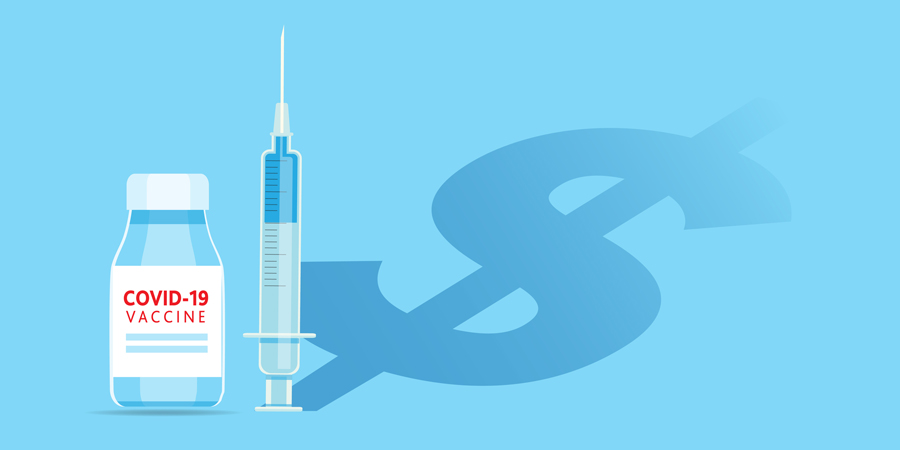As nursing homes brace for the potential financial and workforce impact of a pending COVID vaccination mandate, the industry awaits further details.
The federal mandate, announced August 18 by President Joe Biden and expected to take effect in late September, requires nursing home staff to be vaccinated against the coronavirus as a condition of their facility’s receiving Medicare and Medicaid funding.
On August 25, the Centers for Medicare & Medicaid Services (CMS) clarified its position in a call with providers, as reported by McKnight’s Long-Term Care News. CMS is not likely to immediately strip providers of their program eligibility if they fail to comply quickly, said Jean Moody-Williams, deputy director of CMS’ Center of Clinical Standards and Quality. Loss of eligibility would come only as a last resort after the agency’s usual “progressive pattern of enforcement and remedies” that includes notification, civil monetary penalties and payment denial, she said.
As CMS works to develop the final details, it hopes to engage with providers and address their questions about the mandate, which Moody-Williams said was needed to “level the playing field” among nursing homes and address inequities that could impact quality of care. She added: “In some cases we’ve heard from providers that staff feel very safe in a nursing home or facility that does require vaccination.”
That’s not where the Biden administration stopped. In fact, not much longer after announcing the nursing home vaccine mandate, President Biden announced that a COVID-19 vaccination for staff members at all healthcare facilities that receive federal funding. This could impact more than 17 million employees across health care.
The industry responds

Prior to the recent announcement pertaining to all health care workers, industry leaders quickly recognized an issue with singling out nursing homes with the mandate. Mark Parkinson, the president and CEO of the American Health Care Association and National Center for Assisted Living (AHCA/NCAL), was one of the voices that wanted to increase the mandate across health care settings. In a press release issued soon after the Biden announcement, AHCA/NCAL said that the government “should not single out one provider group for mandatory vaccinations.” Otherwise, vaccine-hesitant workers are likely to leave nursing homes for other types of providers, creating “a disastrous workforce challenge” and hurting the ability of nursing homes ― many of which are already struggling with low staffing ― to care for their residents.
The cost of compliance is also a concern. Possible costs of implementing the new program include testing of staff, recruitment of replacement workers and use of agency staff. In a letter to U.S. Health and Human Services (HHS) Secretary Xavier Becerra and CMS Administrator Chiquita Brooks-LaSure, AHCA/NCAL offered some guidance. In addition to an expansion of the vaccine mandate to cover all healthcare workers, suggestions included more education of vaccine-hesitant staff; a federally funded daily testing alternative for staff who won’t take the vaccine; $3 billion from the Provider Relief Fund to cover program costs; and the modification of CMS visitation guidance in regard to vaccination and test results.
The threat of lost Medicare and Medicaid funding prompted immediate fears among long-term care providers.
“I don’t know how a nursing home survives without those payments,” said David Grabowski, a professor of healthcare policy at Harvard Medical School, before the CMS had reiterated its approach to potential penalties.” Grabowski told Modern Healthcare that nursing homes would have to work hard to get their staffs vaccinated and might also have to lay off unvaccinated workers and hire new employees who have been vaccinated.
Safety is a priority
The Biden administration is honing its efforts to increase vaccination rates among nursing home workers, both clinical and non-clinical. As of August 15, the national rate of vaccinated nursing home staff per facility was 61.1%, compared with a rate of 83.1% for nursing home residents, according to CMS.

Modern Healthcare quoted CMS as saying the new regulations would affect more than 15,000 nursing homes, about 1.3 million workers and about 1.6 million residents. “Keeping nursing home residents and staff safe is our priority. The data is clear that higher levels of staff vaccination are linked to fewer outbreaks among residents, many of whom are at increased risk of infection, hospitalization or death,” CMS’ LaSure said in a statement.
Biden, who previously forced all federal workers to provide their vaccination status or face new, stricter requirements, has celebrated businesses that mandated vaccines for their own workforces. Over the past month, the nation’s rate of new vaccinations has nearly doubled, with more than 200 million Americans now having received at least one dose of COVID-19 vaccine.
The Centers for Disease Control and Prevention (CDC) cautions that the communal nature of long-term care facilities (LTCFs) puts them at increased risk of not only developing COVID-19 but also suffering extreme health consequences, including possible death. LTCFs, which include skilled nursing facilities, nursing homes and assisted living facilities, primarily serve people older than 65 years of age, often with underlying medical conditions.
Vaccinations for residents and staff reduce the likelihood of the coronavirus being transmitted between residents, from residents to staff, from staff to residents, and among staff. The recent spread of the delta variant of the virus has increased the urgency of following guidelines for infection prevention and control, the CDC says.
Subscribe to our weekly newsletter for more news, insights and analysis from the experts improving the healthcare experience for seniors.



